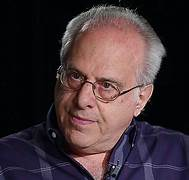Review: Understanding Marxism
After reading the biography of Xi Jinping, I decided I needed to refresh my knowledge of Marxism. If Xi thinks Marxism is so good, what have I forgotten? So I bought this rather thin book by Richard D. Wolff.
Wikipedia says, “Richard David Wolff (born April 1, 1942) is an American Marxian economist known for his work on economic methodology and class analysis. He is a professor emeritus of economics at the University of Massachusetts Amherst and a visiting professor in the graduate program in international affairs at The New School. Wolff has also taught economics at Yale University, City College of New York, University of Utah, Paris 1 Panthéon-Sorbonne University and The Brecht Forum in New York City.

Richard D Wolff
I was disappointed in this book. At only 75 pages, it can be read in less than two hours. It was written by an American professor with impressive teaching experience. I was hoping for a learned set of arguments about the benefits of Marxist economics, but what I got was a largely a high school level set of criticisms of capitalism. I know that capitalism treats many people unfairly. What I wanted to know was how and why Marxism would treat every one fairly with universal freedom.
Professor Wolff described how Marx defined various classes of people involved in the productive process, and how conflicts between the classes leads to inequities in the distribution of ‘surplus’. Marx’s theory was that the class of ‘surplus providers’ (workers) should be given an equal say to the ‘surplus appropriators’ (executives and investors), and Professor Wolff mentions cooperative organisations. These organisations can be successful in low technology organisations such as farming, where all class members have about the same level of knowledge. But in a pharmaceutical business, for example, a laboratory technician would not understand market dynamics, pharmaceutical pricing, approval processes, etc, and a cooperative model will not work there. While Marx himself did not advocate it, some communist governments have used government ownership as a sort of cooperative, usually without a formal voting process or much success, because government bureaucrats do not have either the knowledge or the experience to make vital resource-allocation decisions.
Marx appears to have been a social/economic class expert. He wasn’t particularly knowledgeable about modern economics.
If you are looking fora strong defense of Marxism, I would suggest you look elsewhere.



